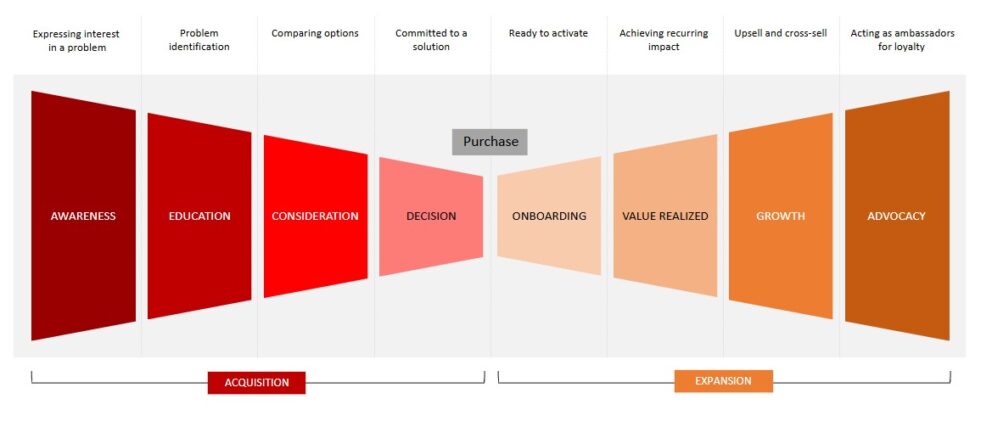B2B Customer Experience: Why It Matters and Where to Start

By Maria Geokezas, VP of Client Services at Heinz Marketing
Customer experience matters – to the tune of $1 billion a year for SaaS-based companies alone. And most CMOs know customer experience matters but sadly, only 57% of them report marginal customer experience impact.
Customer experience impacts the business’ bottom line. In a recent study, the Temkin Group found that when faced with a positive customer experience customers spend more.
- 86% of buyers are willing to pay more for a great customer experience
- 73% of buyers point to customer experience as an important factor in purchasing decisions
- 65% of buyers find a positive experience with a brand to be more influential than great advertising
Where to Start
Customer experience is described in many different ways depending on who you talk to. Some business execs think of it as customer service. Some marketers may think of it as the impressions they create with their brand and marketing messages. Sales and customer success professionals may think of customer experience as the personal relationships they develop over time with a prospect or customer.
Customers may have a hard time describing the experience they have with organizations they do business with. Unless it’s a bad customer experience – and then not only are customers more likely to share their bad experience, they share it more often. Stories or reviews of bad experiences are shared 5 times more than a good experience.
Customer experience is defined by Forrester as “How customers perceive their interactions with your company.” It’s made up of your customers perception of how useful, easy and fun it is to work with your company.
When you think about the last interaction with a company, brand or product, ask yourself:
- How useful was the experience? This is the logical and objective piece of customer experience. Did you get what you needed?, was it delivered on time?, was it of value to you?
- How easy was the interaction? This is the more subjective element of customer experience. Was engaging with the company effortless? How easy was it to work with the company and use whatever they produced for you?
- How engaging was the interaction? This is the emotional part of customer engagement. How enjoyable was the interaction with the company? Did you look forward to those interactions or not?
Here at Heinz Marketing, our values are the foundation of the experience we hope our clients and partners perceive. We feel if we apply our values in how we treat our clients and partners and how we prioritize and deliver our work, we will have created an environment where our clients achieve their goals (usefulness), get more value out of the relationship (ease) and have a positive experience with us (engaging).
But, values aren’t enough. Next time, we’ll discuss how to utilize your core values to create a tangible and unique customer experience that increases loyalty among customers, partners and employees. In the meantime, tell us how you describe a good customer experience.





